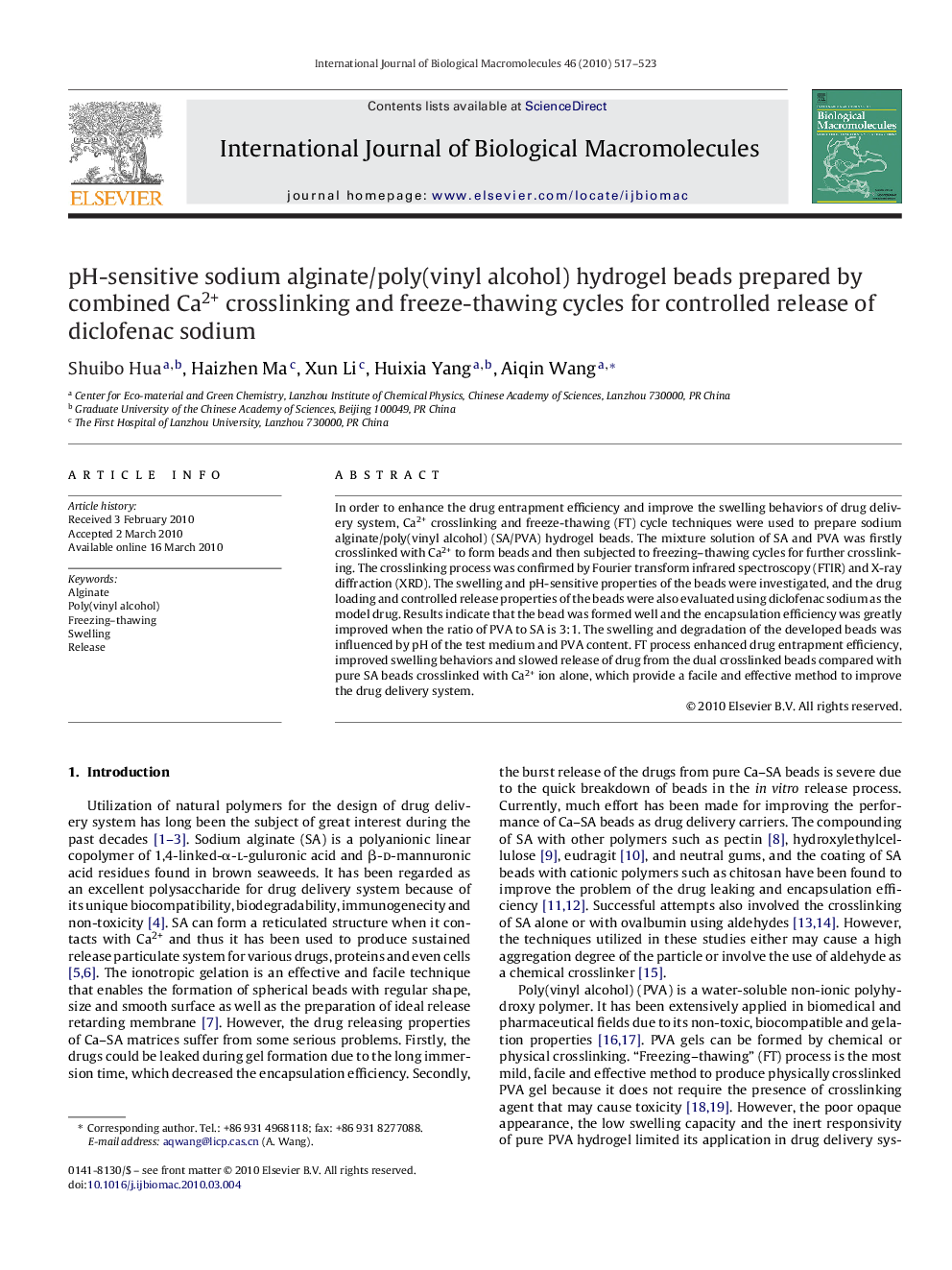| Article ID | Journal | Published Year | Pages | File Type |
|---|---|---|---|---|
| 1987133 | International Journal of Biological Macromolecules | 2010 | 7 Pages |
In order to enhance the drug entrapment efficiency and improve the swelling behaviors of drug delivery system, Ca2+ crosslinking and freeze-thawing (FT) cycle techniques were used to prepare sodium alginate/poly(vinyl alcohol) (SA/PVA) hydrogel beads. The mixture solution of SA and PVA was firstly crosslinked with Ca2+ to form beads and then subjected to freezing–thawing cycles for further crosslinking. The crosslinking process was confirmed by Fourier transform infrared spectroscopy (FTIR) and X-ray diffraction (XRD). The swelling and pH-sensitive properties of the beads were investigated, and the drug loading and controlled release properties of the beads were also evaluated using diclofenac sodium as the model drug. Results indicate that the bead was formed well and the encapsulation efficiency was greatly improved when the ratio of PVA to SA is 3:1. The swelling and degradation of the developed beads was influenced by pH of the test medium and PVA content. FT process enhanced drug entrapment efficiency, improved swelling behaviors and slowed release of drug from the dual crosslinked beads compared with pure SA beads crosslinked with Ca2+ ion alone, which provide a facile and effective method to improve the drug delivery system.
